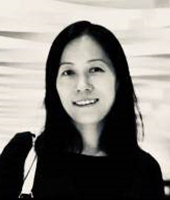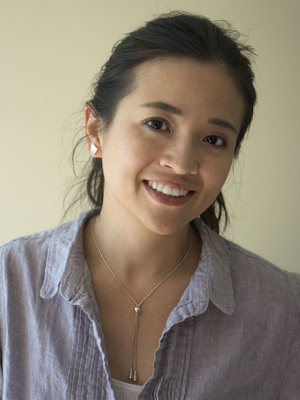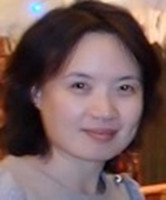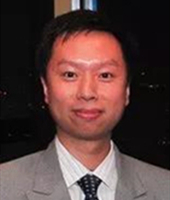2022 PKU International Visualization Summer School
The 13th PKU International Visualization Summer School will be held from July 11-20, 2022.
Course introduction
The summer school invites
well-known scholars at home and abroad with profound knowledge in the field of visualization
research. In combination with the advanced visualization technology, they teach the basic knowledge
of visualization technology, and systematically discuss the cutting-edge theories and research
methods in this field for students. This course focuses on the application and development of visualization in interdisciplinary areas. The fundamentals course is starting from July 11th to 13th, which focuses on visualization techniques (combined with the content of Peking University's online MOOC) and related information design fundamentals. The frontiers course is starting from July 14th to 19th. July 20 is the course summary.
Course form
Online.
Organized by
Key Laboratory of Machine Perception (Ministry of Education)
National Engineering Laboratory for Big Data Analysis and Application
Target
The summer school mainly recruits master students and doctoral students in related deciplines. The students are divided into formal and informal students. At most 60 students will be enrolled, of which at least 1/5 will be from design background and 1/5 from application background (including humanities/social science/science/engineering, etc.), and will be required to complete the course project requirements. The course project will be assigned to students with computer, application, or design background to complete together. Those who pass the course project assessment will receive a certificate of completion of the summer school issued by the Graduate School of Peking University. Informal students are also enrolled. After completing the course questionnaire and corresponding tasks through online listening, they will be listed on this website to pr ove their participation in the course.
Translated with www.DeepL.com/Translator (free version)
Enrollment Method
The selection of students is based on a free application and merit-based approach.
Letters of recommendation from a mentor or supervisor are required to enroll as a
former student. The application materials will be reviewed by the expert committee
to decide the admission list. Students with master's or doctoral degrees and young
faculty members from universities and research institutes in China in related
fields, as well as those engaged in R&D in enterprises, are eligible to apply. The
summer school also encourages a small number of outstanding senior undergraduates
who have a strong interest in the field of visualization and are interested in
applying for graduate studies at Peking University to attend the program. Please
indicate the relevant information in your application.
No tuition for for students.
Tuition for companies or participants who are already working will be announced later.
Registration for students: http://www.chinavis.org/s22/register/index_en.html
For registration, please fill in the required information on the page
for submitting application materials, and ask the recommender(s) (two persons for formal application
and one person for audit application) to send the
recommendation letter to pkuvis@pku.edu.cn to complete the application. Applicants who have been
approved by the expert committee will be notified. If the information is incomplete or the
recommendation letters are not received, the application is invalid.
The deadline for summer school registration is May 20th. The
admission notice will be sent to the applicant's registered mailbox in batches.
TBD
TBD
 Xiaoru Yuan
Xiaoru Yuan
Speaker Introduction: Xiaoru Yuan is a professor at the School of Electronics Engineering and Computer Science, Peking University, a PhD supervisor, deputy director of Key Laboratory of Machine Perception (Ministry of Education), and executive deputy director of National Engineering Laboratory for Big Data Analysis and Application. At the beginning of 2008, he established the Visualization and Visual Analytics Laboratory at Peking University. His research directions include complex field data visualization, high-dimensional/spatial-temporal data visualization, traffic and social data analysis and rapid construction methods of visualization. The work of high dynamic range visualization won the Best Application Paper Award in IEEE VIS 2005. Since 2013, he has guided the laboratory team to win 7 prizes in the IEEE VAST challenge. He has served dozens of times as a member of the IEEE VIS, EuroVis, IEEE PacificVis and other international visualization conference procedure committee. He was the papers co-chair for IEEE VIS 2017 (SciVis), and he involved in creating ChinaVis. He is director of the China Computer Federation, distinguished member, distinguished speaker. He is member of Big Data Committee, menber of Human-Computer Interaction Standing Committee and member of Computer Aided Design and Graphics Committee of China Computer Federation. He is the director of China Society of Image and Graphics, director of Visualization and Visual Analysis Committee.
 Rebecca Ruige Xu
Rebecca Ruige Xu
Speaker Introduction: Rebecca Ruige Xu is a professor of computer art at Syracuse University. Her research interests include artistic data visualization, visual music, experimental animation, interactive installations and virtual reality. Her work has been exhibited in IEEE VIS Arts Program, SIGGRAPH & SIGGRAPH Asia Art Gallery; ISEA; Ars Electronica and many other venues. Xu served on the Media Arts Advisory Panel for the U.S. National Endowment for the Arts. She is the co-founder of ChinaVis Arts Program (China VISAP) and has been chairing China VISAP since 2017. Xu was the co-chair of 2019, 2020 PacificVis Visual Storytelling Contest, and currently serves as the Exhibition Chair of IEEE Vis Arts Program.
 Cagatay Turkay
Cagatay Turkay
Speaker Introduction: Cagatay Turkay is an associate professor at University of Warwick.He has a PhD in visualization (University of Bergen), MSc. (Sabanci Uni., Istanbul), and BSc. (METU, Ankara) in Computer Science. He has also served as a visiting research fellow at Harvard University in 2013. His research mainly focuses on the tight integration of interactive visualizations, data analysis techniques and supporting exploratory knowledge and capabilities of experts. He has a special interest in high-dimensional, temporal data from bioinformatics and the biomolecular modelling domain. He has published multiple papers in IEEE TVCG, EuroVis, Computer Graphics Forum, etc., and in 2016, his paper at the IEEE VIS (InfoVis) received an Honorable Mention. He won the Young Researcher Award in EuroVis 2019. He is the open practices chair for IEEE VAST at VIS 2019. He has also served during multiple years on the program committee for IEEE VIS, EuroVis, EuroVA, etc. He has served as a guest editor for ACM Transactions on Interactive and Intelligent Systems, IEEE Computer Graphics and Applications and editorial board member for Machine Learning and Knowledge Extraction Journal.
 Yvette Shen
Yvette Shen
Speaker Introduction: Yvette Shen is an associate professor in the Ohio State University, the head of visual communication department, and an adjunct professor of the East Asian Studies Center in Ohio. She is good at design methodology, creation application, teaching theory in information visualization. Her research interests include how to help people understand complicated information and gain more study interests, and how to using fnformation design to promote positive emotions and behaviors. She values interdisciplinary collaboration and problem-solving processes. And she is dedicated to to exploring functional, creative, and human and nature-based design solutions to complex problems. She published academic acticles on professional platforms like AIGA Dialectics, Journal of Communication in Healthcare, SEGD, Design Research Society, Digital Humanities Quarterly, Communication Design, HCI, CHI。She published her works on the organization like Creative Quarterly, Applied Arts, GD USA, Adobe Design Achievement Awards, Information is Beautiful, and won awards。
 Jian Chen
Jian Chen
Speaker Introduction: Chen Jian is an associate professor at the Department of Computer Science and Engineering at The Ohio State University. She received PhD degree in Computer Science from Virginia Tech advised by Doug A. Bowman and did postdoctoral work with David H. Laidlaw at Computer Science Department at Brown University. Her research centers around the fascinating interdisciplinary science of interactive visualization and virtual reality. She is directing the OSU Interactive Visual Computing Lab , where she works with the most brilliant students and colleagues worldwide to understand how humans see, make sense, retain, and understand information and to design and study new interactive metaphors and visualization to augment scientists' ability to explore vast amount of data on desktop or immersive virtual environments. Her current methods combine cognitive and perceptual experiments and mathematical modeling.
 Zhicheng Liu
Zhicheng Liu
Speaker Introduction: Zhicheng Liu is an assistant professor in the department of computer science at University of Maryland. Prior to joining UMD in August 2021, he was a research scientist at the Creative Intelligence Lab, Adobe Research. Zhicheng received his PhD in the Human-Centered Computing program from Georgia Tech and was a postdoctoral fellow at the Department of Computer Science of Stanford University. His research on data visualization and human-data interaction has received multiple awards from the ACM CHI and IEEE VIS conferences.